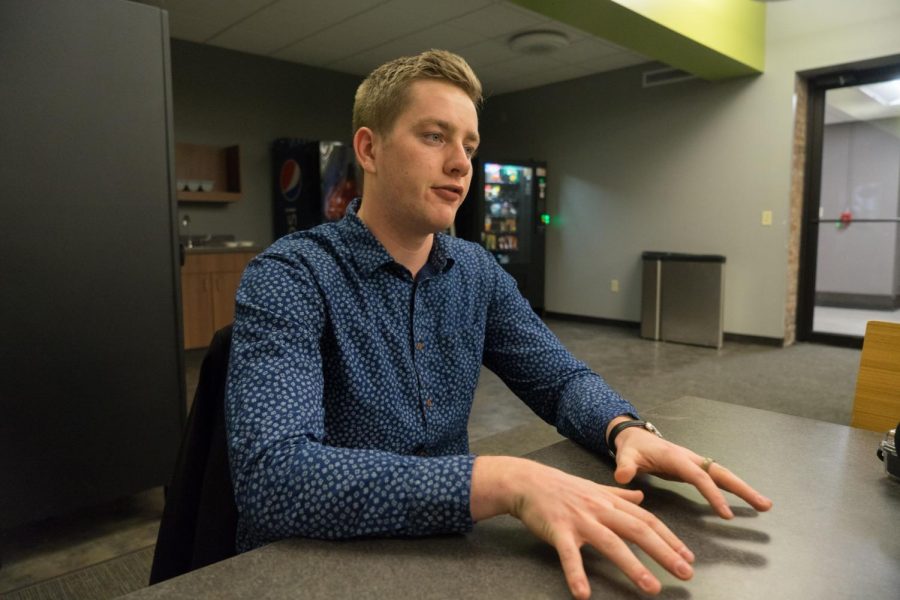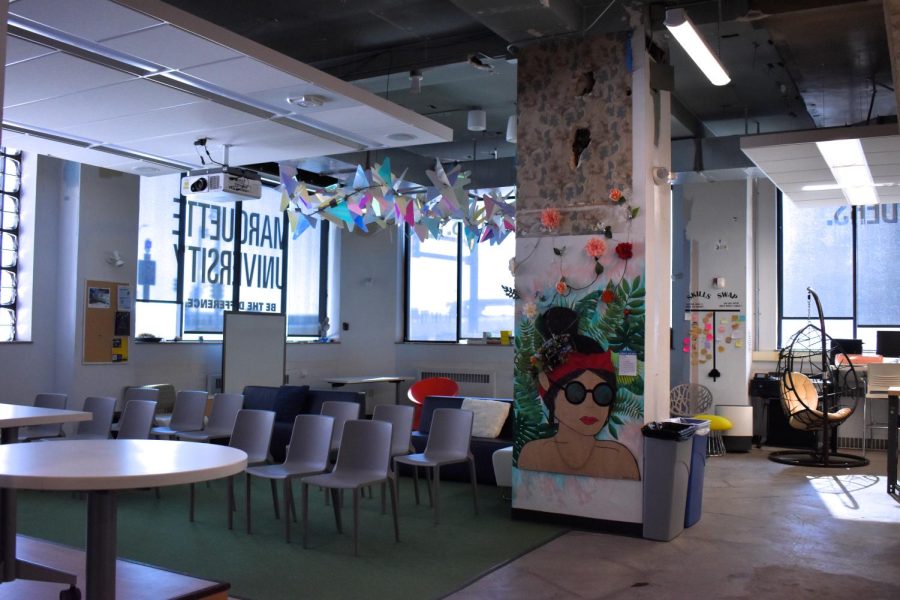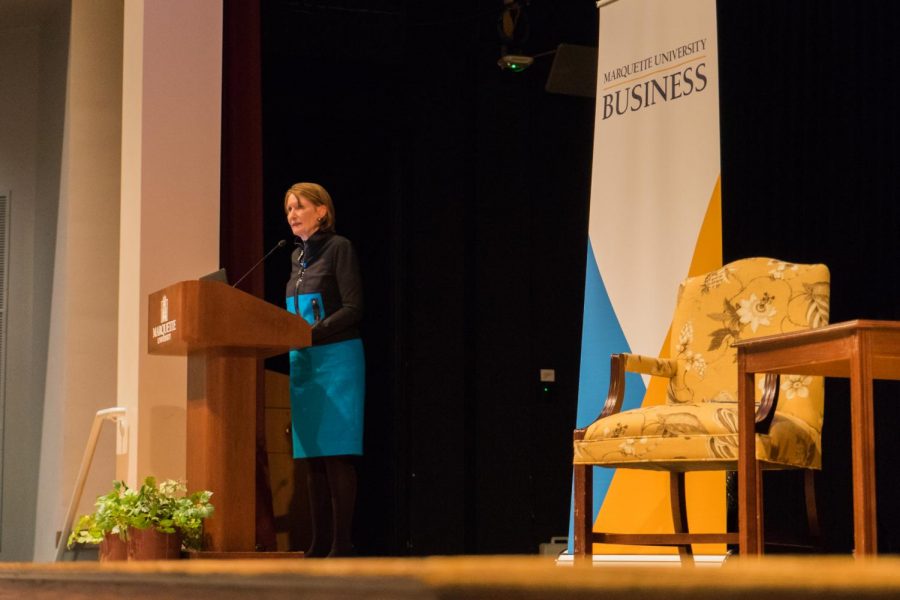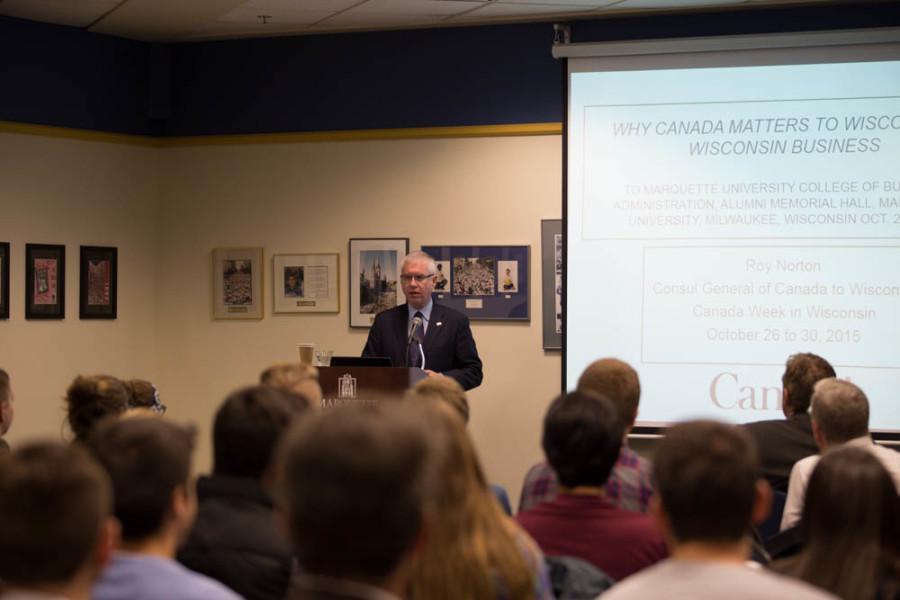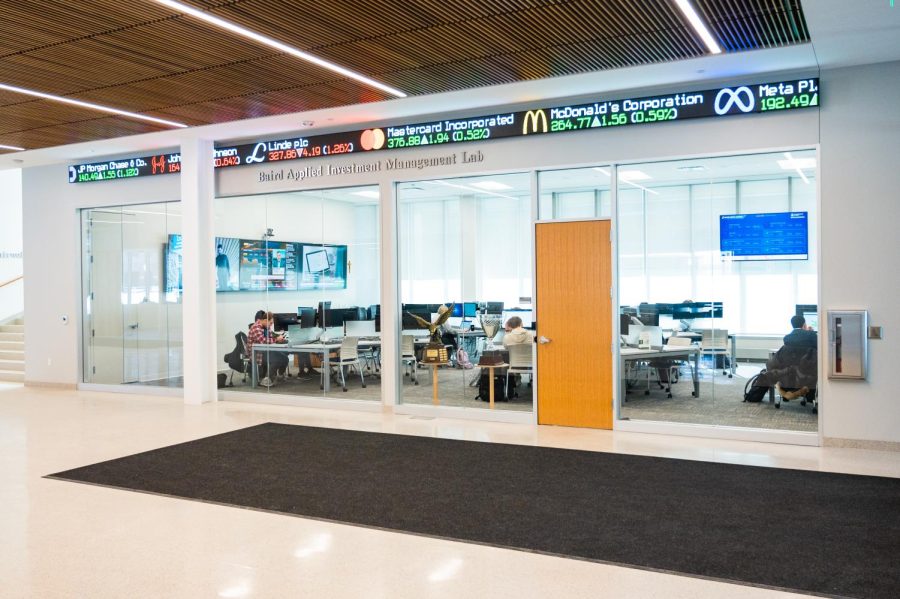Brian Till, dean of the College of Business Administration, and Owen Raisch are building Marquette’s new student-run business program from scratch.
When Till was a dean at Xaiver University four years ago, he built their student-run business program with Raisch, who was an undergraduate student.
“Student-run business is an excellent example of (experiential learning) because students will be involved in making all of the decisions,” Till said.
He said students will be involved in everything from staffing the business to working on future plans for the business.
“The primary reason that we think (experience) is important is to enable our students to truly create that impact on the world,” Raisch said. “That is part of being a Jesuit school.”
Jack Toner, a junior in the College of Business Administration, is a member of the program’s founding committee. He said the committee is building the program based on feedback it received from other colleges.
Students will have the opportunity to pitch business ideas to program boards once they’re formed, Toner said. Once an idea is accepted, students will receive funding and guidance. The first opportunity for students to learn about the program is March 2 at the 707 Hub.
Chosen students will have an opportunity to run their own business while the university holds all the risk, Raisch said. The university will effectively own the businesses. Because the program will be set up as a non-profit, the profits will go back into the program.
“The benefit that we offer to those students who are entrepreneurial, but don’t really want to take on all that risk or be committed to the business long-term, is that they can start something with us, and we’re going to provide legacy to it,” Raisch said.
In addition to experiential learning, Raisch said community engagement is one of the program’s main strategic interests.
“I’m sure a lot of people know about the ‘Marquette bubble.’ Sometimes they feel a bit separated from the community. We want to use this program to break those barriers down and become even more intertwined in the community and give opportunities to everyone,” Toner said.
SRB is open to the entire campus, and the founders said they highly encourage non-business students to apply.
“I’m a fan of students of theology, philosophy, social justice,” Raisch said. “I think this program could be really valuable to them because I know they want to create a positive social impact, but I believe this enables them with the skills that they need to really do that.”
The program is called the “Marcus Lemonis Pay the Profit Forward Student-Run Business Program,” after the Marquette alumnus and star of reality show “The Profit,” which focuses on saving small businesses.
Lemonis issued a $3 million challenge last spring in which he pledged $1.5 million for the student-run business program if the Marquette community could match that number.
Toner said the founding committee is currently working on launching its website and forming a founding student board of advisors and an external board.
“You would have your typical board meetings where the companies would come and speak to you about what’s going on, struggles they face, things like that,” Toner said.
“I definitely want to make sure that we’re having a super diverse board and we’re well representing all the diverse populations on campus,” Raisch said. “I think a critical part of the student experience is getting to meet these other communities, but also a lot of the best business ideas are going to come from a mixture of ideas and backgrounds.”
Raisch said he aims to have 50 percent women and 50 percent minorities on the boards.
The program will help students build a sense of camaraderie with classmates and with people across the country, Raisch said.
“That’s going to provide a super important network once you graduate, but also a great way to experience each other and to experience the challenge of building something new with a group of friends,” Raisch said.

